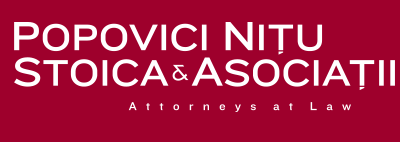- About Us
-
Expertise
- Banking & Finance
- Capital Markets
- Competition & Antitrust
- Corporate & Commercial
- Data Privacy
- Employment & Pensions
- Energy & Natural Resources
- Gambling & Betting
- Healthcare & Pharmaceuticals
- Insurance
- Intellectual Property
- International Arbitration
- Litigation
- Mergers & Acquisitions
- Project Finance/PPP, Concessions & Infrastructure
- Public Procurement
- Real Estate
- Restructuring & Insolvency
- Sports Law
- Tax
- Telecommunications, Media & Technology
- Transports & Logistics
- White Collar Compliance & Defense
- Our team
- Careers
- Publications
- News and Press
- Contact
Articles
Unique tax rate– the key element of the new fiscal reform
The highly debated fiscal reform proposed by the new Government has been recently implemented, triggering a significant reorganisation of the Romanian fiscal system, and came into force as from January 1st, 2005.
As regards its contemplated effects, the major novelties brought by the recent fiscal reform refer to the profit tax and the income tax. Thus, the profit tax rate due by legal persons has been reduced from 25% to 16%. On the other hand, the income tax has been reconsidered, by eliminating the income progressive taxation, with different rates depending on the income level, and by instituting the unique taxation rate of 16% of the taxable income.
Already experimented in states such as Russia, Ukraine, Slovakia or Estonia, the unique taxation rate tends to create the premises for a significant economical growth, by stimulating domestic and foreign investments and by reducing tax avoidance. However, for such effects to be possible, the fiscal relaxation must be supported by firm actions of fiscal discipline meant to bring moonlighting and underground economy to light.
In this respect, new actions are expected within the next period. These actions refer to the reform of punishes inflicted for tax avoidance practices by incriminating such practices and to the correlation of the new Fiscal Code implementation in order to maintain budgetary revenues at a level corresponding to the requirements and commitments Romania has undertaken in view of joining the European Union.
However, the new fiscal reform also consists of other novelties, such as the reduction from 15% to 10% of intellectual property rights income tax or the increase of other tax rates: from 1.5% to 3% for the micro-enterprises income tax, from 5% to 10% for the dividend tax due by natural persons, as well as the increase of the taxation rate up to 16% for capital gains tax.
At the same time, the deductions for dwelling insurance and the personal deductions for income higher than ROL 30,000,000 have been eliminated. On the other hand, as for income from intellectual property rights, deductions have been reduced by 20% and for income from real estate lease, deductions have been reduced by 25%. Finally, all deductible expenses for gambling income have been eliminated.










